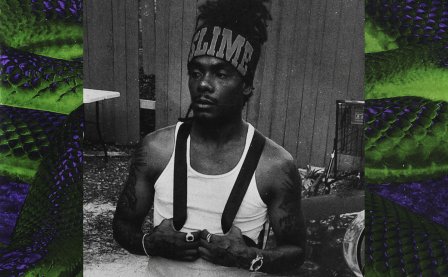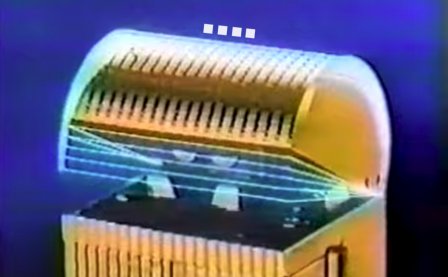“We write simple songs. In fact, the best songs are the ones that happen immediately and spontaneously. If you work on a song for weeks and weeks, you’re forcing it. Every song has its own creation story. Sometimes someone comes to practice with a complete song. Other times we only have a riff, and we hammer out the right words. Mostly, we just screw around until inspiration hits.”
– Mark Hoppus, Blink-182
“I remember right before Christmas [1997], we sold 40,000 copies in one week. That’s when I went, ‘Oh my God, this is heavy.’ That and when I had a gold record and gave it to my dad. My dad was all about business and getting a career, go to school and everything, and he was not always as supportive about the band, never understood.”
– Tom DeLonge
As hip-hop pioneer Fab Five Freddy once said, “There has always been this rebellious connection between hip-hop and punk music,” and there’s certainly no reason to doubt the man. After all, he and Grandmaster Flash were name-checked on one of Blondie’s biggest hits. From South Bronx’s ESG incorporating hip-hop grooves into their danceable brand of punk in the early 1980s to Sonic Youth recruiting Public Enemy’s Chuck D for “Kool Thing” a decade later, the connection between hip-hop and punk is abundantly clear and is even directly correlated by a little known Bad Brains tribute band called the Beastie Boys. Today, it goes beyond just party lines exhibiting one another’s distinct characteristics or ideologies; they’re finally coexisting together. Death Grips happened, Odd Future regularly collaborates with hardcore outfit Trash Talk, once bifurcated fashion styles — especially as a genuine form of self-expression — are now shared, and live shows are usually a hodgepodge of fans of both genres moshing in harmony. The motto is simple: If we walk together, then we rock together.
Thanks to the likes of Chief Keef and Young Thug blowing up the genre’s constructs and conventions tenfold, the current rap landscape has shifted from soapbox sociopolitical grandstanding to high school juvenilia. In turn, it’s easy to see how hip-hop went from being “classic rock” to going through its own despised pop-punk phase: it’s slightly awkward, virtually banished from the critical sphere, and most definitely misunderstood, especially by the genre’s forefathers and torchbearers. It’s also proudly wearing a few other key components on its sleeve: it’s basic, rude, the kids love it, and the parents absolutely hate it. Never would Blink-182 have thought that their glorious “I think I’m different, but this is where I belong” Gen X battle cry would resonate more than with Millennial rappers over two decades later. For Lil Uzi Vert, the punk rock comparison isn’t merely a coincidence either. In interviews, the 21-year-old Philadelphia rapper will often sidestep cliché rap influences and instead fashion himself as an apostle of the self-proclaimed “last true rock and roller” GG Allin.
Of course, to my knowledge, Lil Uzi Vert has never actually defecated during a live show, attacked audience members with his fists and feces, or written songs about grave-robbing and fucking the dead. Instead, Uzi uses GG Allin’s controversial name as a catalyst for his own rockstar fantasies and debauchery, and on his latest mixtape, the aptly “punx” titled Lil Uzi vs. The World, he further positions himself a miscreant in popular rap. Like his peers Chief Keef and Young Thug, Uzi sees himself as a misunderstood young man, which would explain his affinity for punk’s in-your-face aesthetic over gangsta rap tropes. His crass, borderline obnoxious vocal delivery shares more DNA with, say, New Found Glory than Jay Z, and his cadence sounds tailor-made for Warped Tour’s main stage. This sentiment is none more apparent than on “Money Longer,” the tape’s standout track, where Uzi runs through a string of brags but in the process sounds less like Pusha T than he does a pesky teenager looking to upset their parents.
Over the course of the nine tracks on Lil Uzi vs. The World, you won’t find a second of resistance, rebellion, or even any immediately threatening form of attitude. No, Lil Uzi Vert is more Blink-182 than GG Allin, more liable to crush on his Home Ec teacher than to burn down the school. That’s totally fine, though, because the mixtape is an altogether fun and harmless approach to modern rap music. Lil Uzi vs. The World is essentially why so many kids want to become rappers when they’re young and impressionable: songs like “Canadian Goose” and “Ps & Qs” are perfect for driving too fast, smoking too much, and cutting class. Here, Uzi doesn’t stray far from what’s comfortable, and all nine instrumentals on the tape are perfectly suitable for him to mix insight, humor, and endearing honesty that fuel his best songs. Contemporary rap’s reliance on the verse-hook-verse model for songwriting, coupled with a deceptively simple instrumental backdrop, also makes it a not-so-distant relative of the classic three-chord approach in punk rock. Not to mention songs like “Scott & Ramona” and the Metro Boomin-produced “You Was Right” are great to skank to.
More about: Lil Uzi Vert




